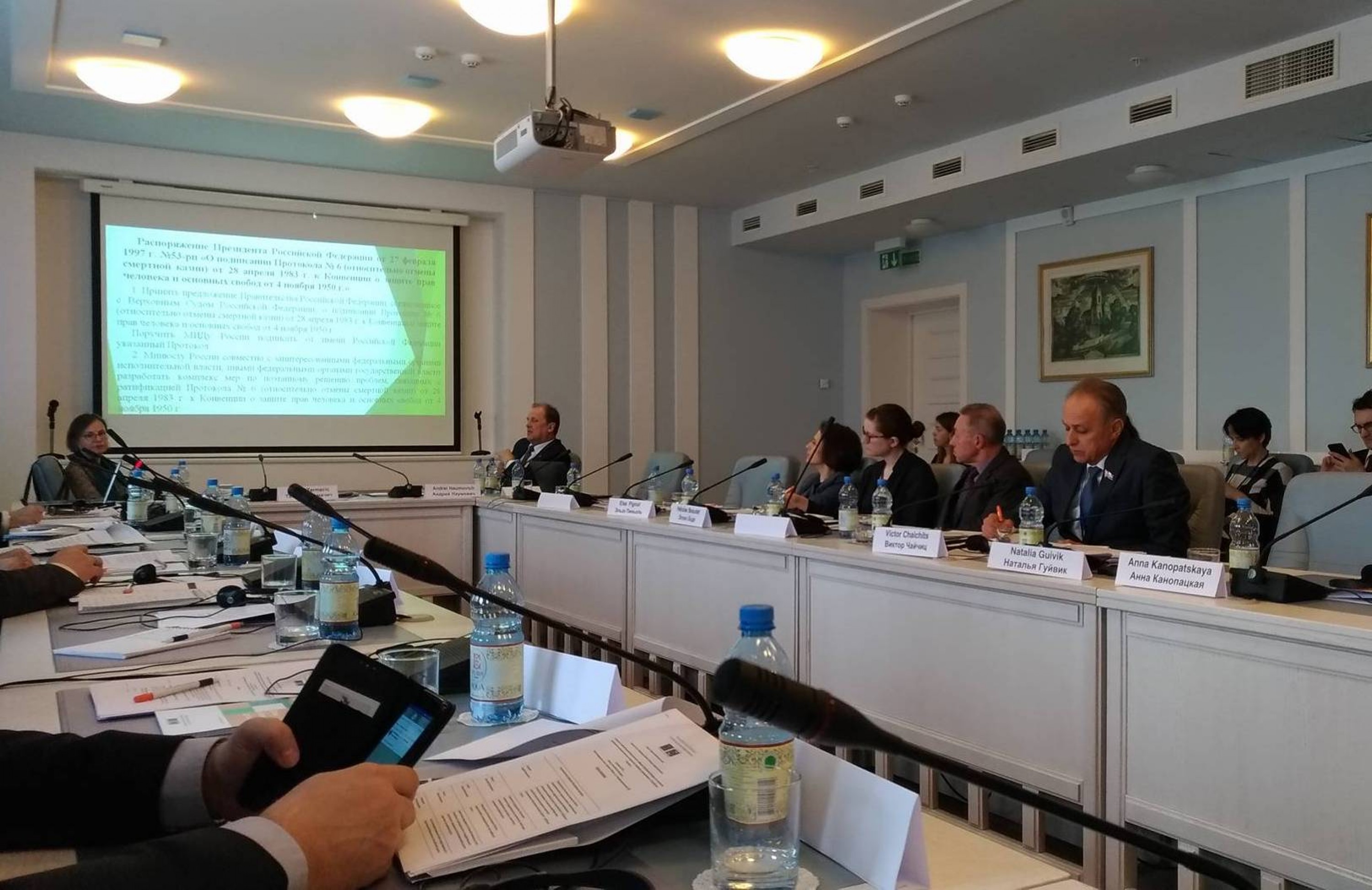Time to act towards true abolition of the death penalty, say HRDs

Round table “Legal aspects of the abolition of the death penalty in Belarus”. Minsk, April 18, 2018. Photo: Human Rights Center "Viasna"
On April 18, Minsk hosted a round table entitled “Legal aspects of the abolition of the death penalty in Belarus”. The event was organized by the Council of Europe and involved members of the Belarusian Parliament’s lower chamber and representatives of NGOs, including the Human Rights Center “Viasna”.
“The participants, many of whom were MPs, kept saying that Belarus has approached the phase of the abolition of the death penalty. We can say that this idea was in the air. Another impression is that, unfortunately, such events cause certain concern. The fact is that, for example, on the eve of a similar event in 2016, three people were executed in Belarus. Also, six months earlier, Siarhei Ivanou was executed, which happened two weeks after another event of this kind,” Andrei Paluda, coordinator of the campaign “Human Rights Defenders against the Death Penalty in Belarus”, said in a comment on visiting the discussion.
“I recently met with former French Minister of Justice Robert Badinter. During a long conversation about the death penalty, he said that Belarus remains a major stronghold of resistance to the global abolitionist movement. And I cannot but agree with that, because, on the one hand, there is an understanding by the authorities that the death penalty prevents the country’s progress, but, on the other hand, I constantly hear references to the 1996 referendum and the public opinion, which also prevents progress. One gets the impression that people first say the obvious things, such as “the wheel is round”, but then offer to listen to other opinions.”
Andrei Paluda does not rule out that the abolition of the death penalty in the near future may again be put to a referendum, since a large number of government officials hint at the move. However, the human rights activist is convinced that the issue cannot be resolved in this way, and recalls that either the abolition or a moratorium on executions can be enforced by a direct decision of the President or Parliament.
Of the same opinion is Pavel Sapelka, lawyer of the HRC "Viasna", who also took part in the round table. According to him, representatives of the authorities too often refer to the “will of the people” and their unwillingness to abolish the death penalty. At the same time, they forget that a large number of really important changes in the law occur without public participation.
Pavel Sapelka believes that the phase of discussing the need to abolish the death penalty should remain in the past, as the majority of lawmakers and government officials are in favor of its abolition. The question of the need to abolish capital punishment is resolved, according to Sapelka. Now we need to concentrate on deciding when and in what form this will happen.
“And at this phase, of course, it is necessary to discuss, to study foreign experience and domestic legislation and to offer steps that would take into account the interests of various stakeholders, including those who are currently held on death row. For example, one of the proposals was the introduction of a moratorium for a short time — one or three years. This, of course, would be a major step forward after so many years of discussion, but no one cares about the feelings of persons sentenced to death. They will first receive hope and then they’ll lose it forever. And this is nothing but inhuman treatment.”

















